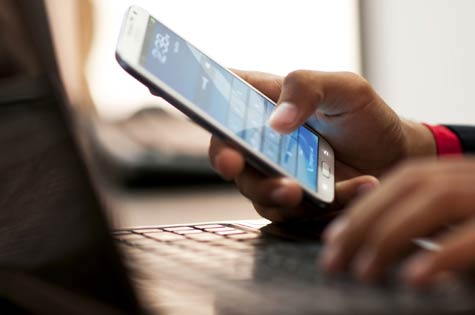The Federal Communications Commission (FCC) and Federal Trade Commission (FTC) have sued AT&T in U.S. District Court for the Northern District of California, San Francisco Division, for illegally reducing the connection speeds of many subscribers on its 3G networks.
According to eWeek, the complaint asserts that AT&T had promised “unlimited data” to prospective customers and, indeed, had made that a central element of its marketing campaigns. In reality, it had limited data to 3.5 million customers more than 25 million times. The throttling, the agencies assert, occurred after as little as 2GB had been used in a billing period. The practice began in 2011, according to the complaint.
The complaint said that in some cases data was slowed by as much as 90 percent. And it seemed to not be an accident, according to the FTC:
“AT&T’s marketing materials emphasized the ‘unlimited’ amount of data that would be available to consumers who signed up for its unlimited plans,” the agency stated. “The complaint alleges that, even as unlimited plan consumers renewed their contracts, the company still failed to inform them of the throttling program. When customers canceled their contracts after being throttled, AT&T charged those customers early termination fees, which typically amount to hundreds of dollars.”
The lawsuit involves unlimited plans that are no longer offered. Subscribers using those plans were grandfathered in. Kate Cox at The Consumerist takes a look at how the approach taken by AT&T generated a lawsuit while the other carriers, which also control customer usage, so far are untouched.
The company’s terms of service clearly state the right of the company to control use of its networks. However, those prerogatives are not reflected in the company’s advertising. That omission accounts for the participation of the FTC in the suit.
Cox’s explanation is that AT&T is being far more aggressive than the others. She says that the throttling could legitimately impact about 5 percent of users. The number of subscribers AT&T grandfathered in is about 14 million, she writes, which means that approximately 700,000 should be throttled. AT&T has reduced data to about five times that number, however. The reason that there is such a discrepancy is that the limit above which subscribers should be impacted is much higher than the demarcation AT&T was using:
AT&T’s threshold for throttling “unlimited” data is now as low as a fixed 3 GB per month. That’s not only a far cry from unlimited, but it also doesn’t have anything to do with actual network congestion, blocking other users’ access, or ruining the network for everyone else — AT&T’s justifications for the practice in the first place.
Ars Technica quotes from an AT&T press release denying the charges and notes that Verizon recently backed away from plans to limit usage on LTE networks. The FCC had pressured the carrier not to make that move.
Wireless spectrum is a limited resource. How it is managed and the amount that subscribers are entitled to will always be tricky issues. The button AT&T pushed that resulted in the lawsuit is likely the appearance that it was using the issue as a way to obscure unfair marketing practices. Whether it actually did so or not, of course, is for the courts to decide – if a settlement is not reached first. The bottom line, though, is that carriers put themselves in harm’s way if they push the envelope.
Carl Weinschenk covers telecom for IT Business Edge. He writes about wireless technology, disaster recovery/business continuity, cellular services, the Internet of Things, machine-to-machine communications and other emerging technologies and platforms. He also covers net neutrality and related regulatory issues. Weinschenk has written about the phone companies, cable operators and related companies for decades and is senior editor of Broadband Technology Report. He can be reached at [email protected] and via twitter at @DailyMusicBrk.




